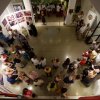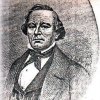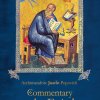Кад студенти из Бостона дођу на Балкан
У јесен 2009. уписао сам докторат у Америци. Срећом, већ 2010. био сам асистент на летњем програму који води додипломце из Америке на Балкан. Те године смо ишли у Јасеновац, да видимо хрватску и српску (Доња Градина) верзију прошлости. Једва сам чекао да покажем студентима историјски контекст југословенске драме. Кад смо стигли у Доњу Градину, једва сам чекао да одемо. Практично није имало шта да се види, осим бројева жртава. У хрватском музеју Јасеновца, неколико студената је отворено коментарисало како је „све умивено”. Један је рекао: „Више верујем хрватској верзији. Они су понудили нешто више од табле са бројевима.” Студенти су свесни да долазе из најмоћније земље на свету коју сви желе да придобију за себе. Али, мало ко од њих ће посветити време читању озбиљних књига. Њихову пажњу имате док траје њихово путовање. Или ако снимите филм. Знате ли онај холивудски филм о геноциду над Србима? Знате ли било који?
.






